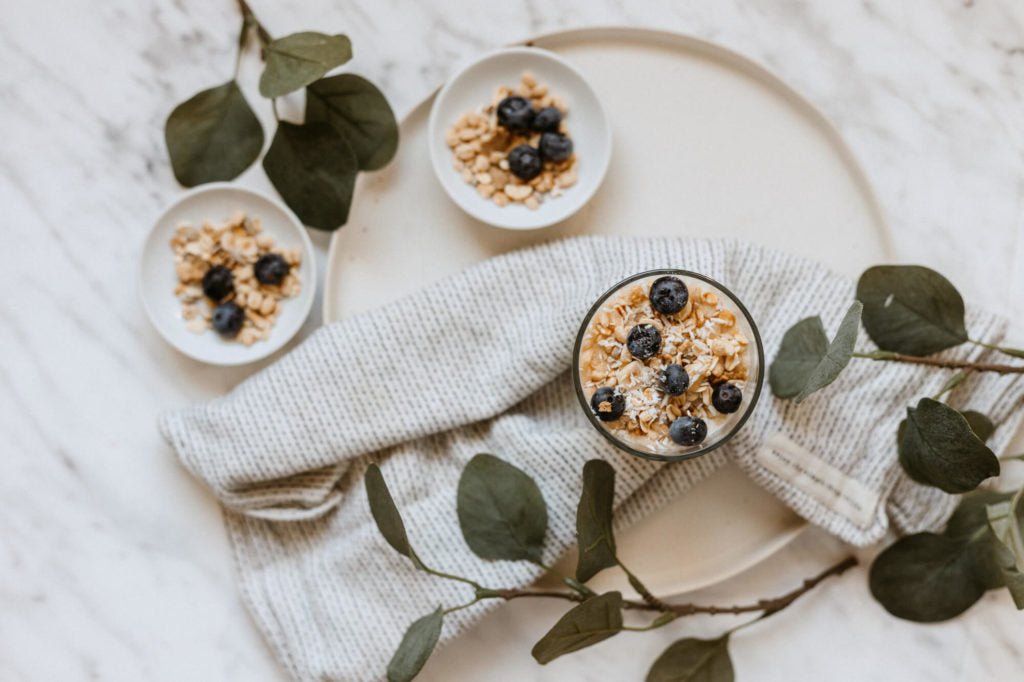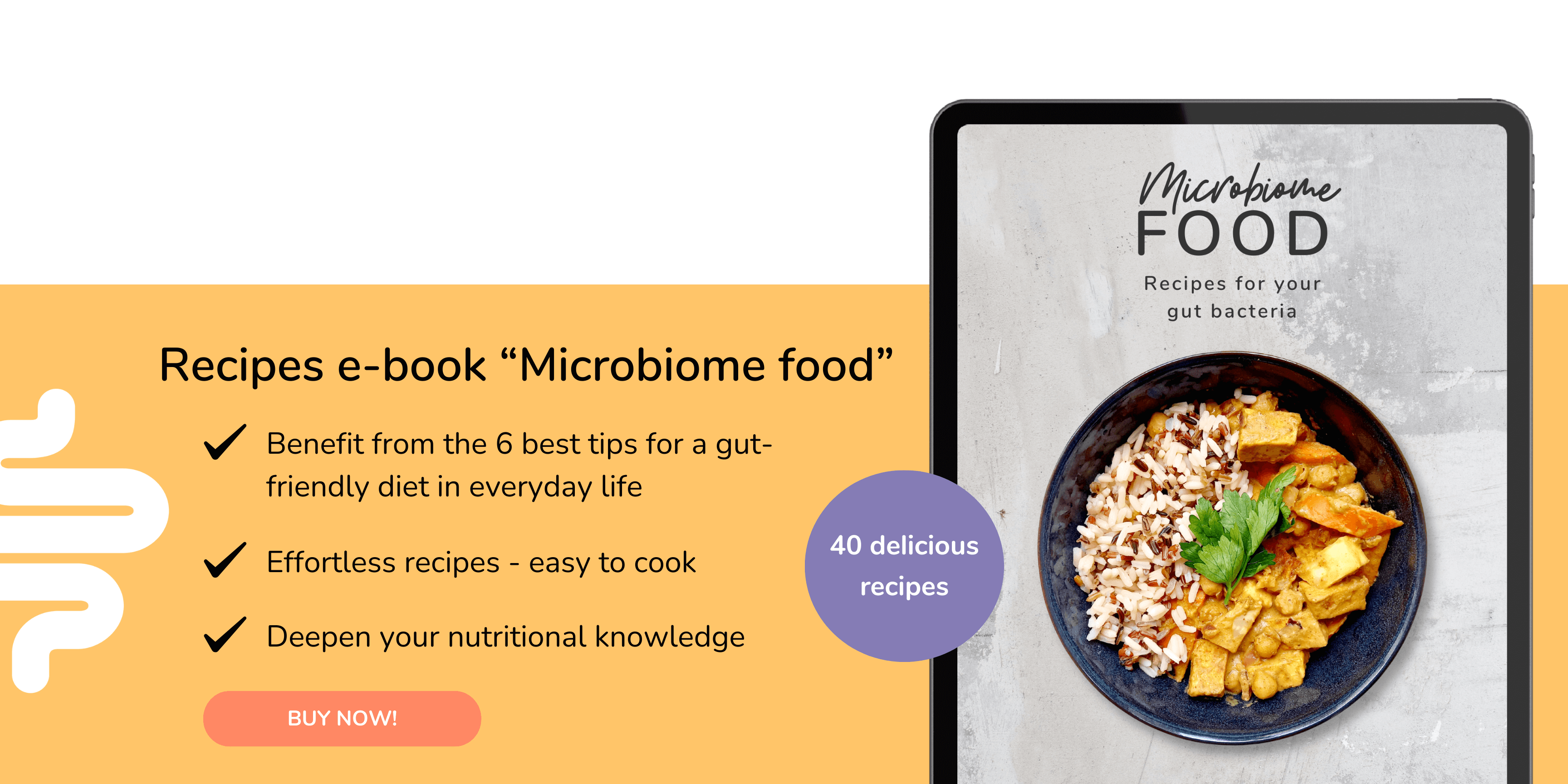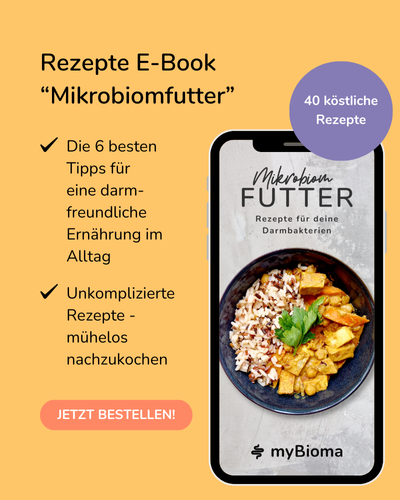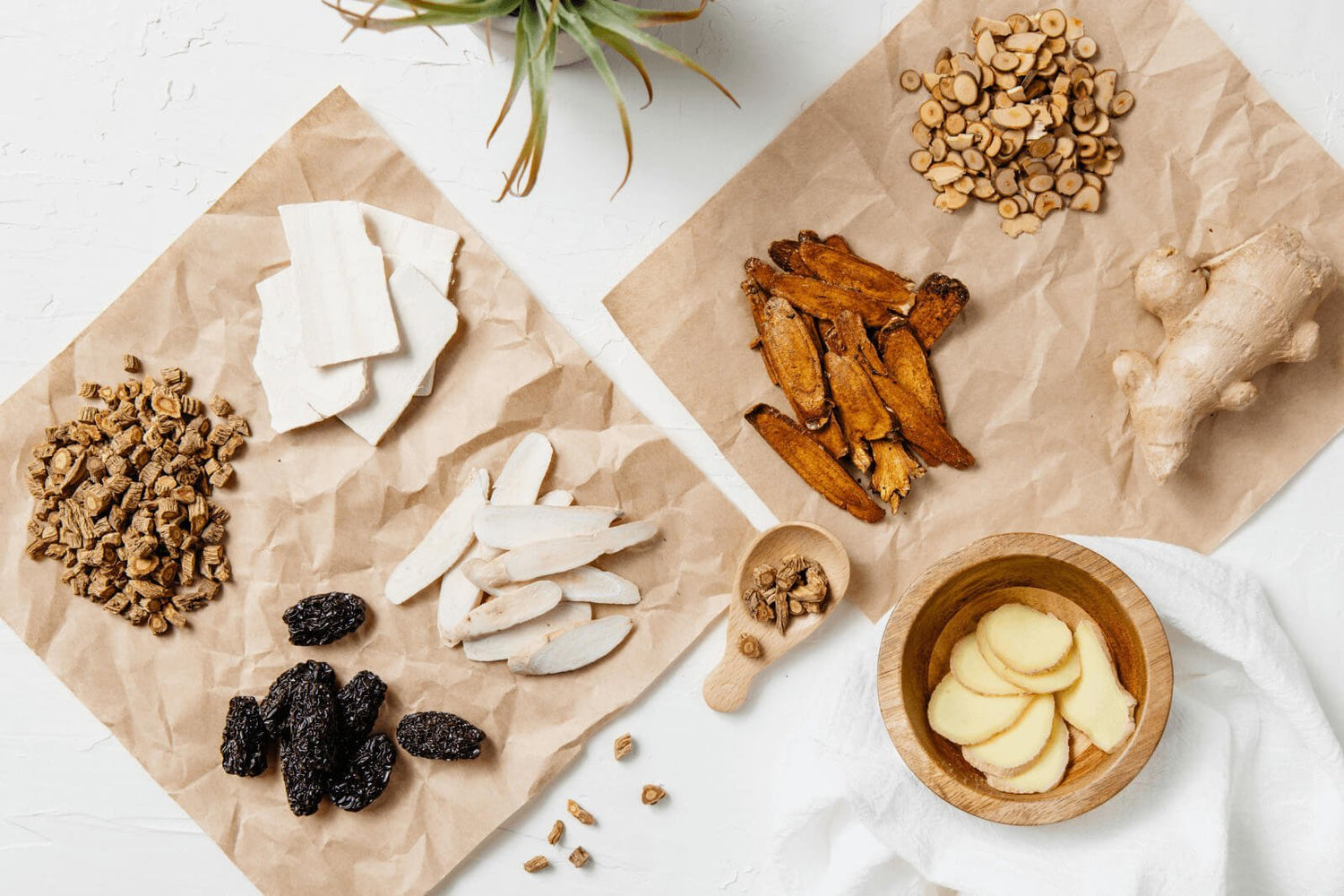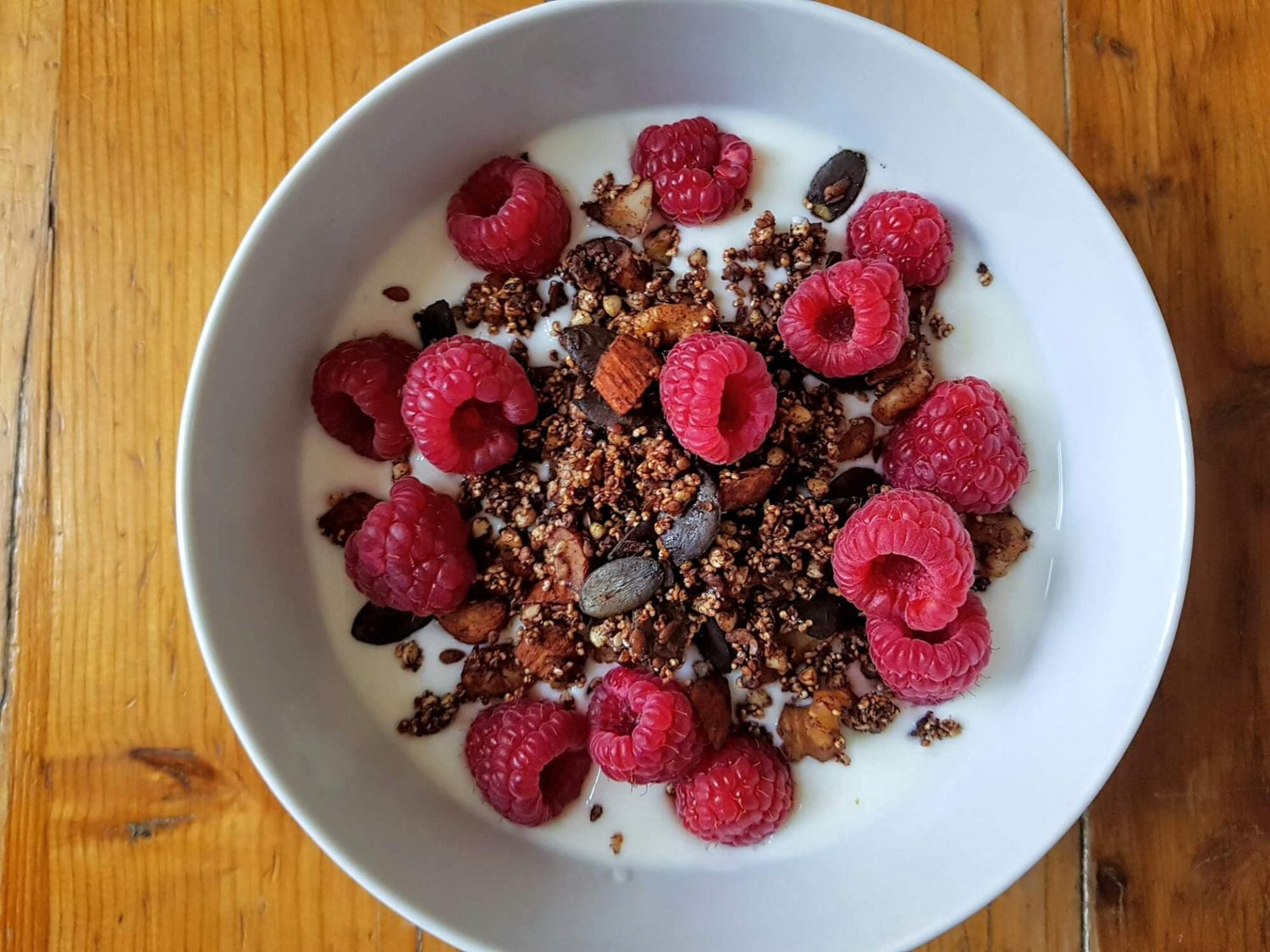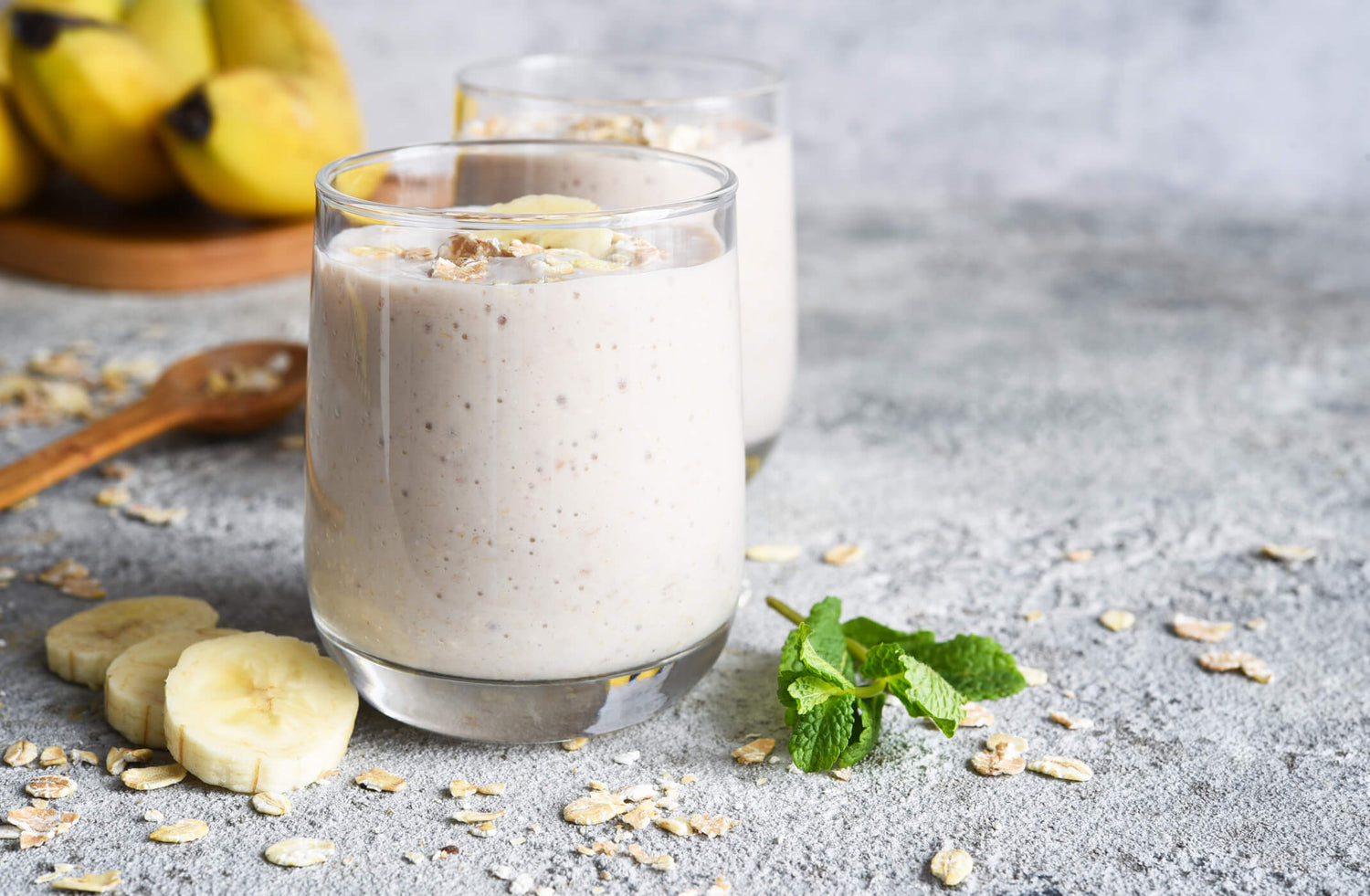Ice cream, lots of raw vegetables, large quantities of fruit and drinks preferably from the fridge: these are the classic summer eating habits. Without a doubt, they provide a pleasant, refreshing effect at the moment and help us to defy the heat. In the long term, however, large quantities of raw vegetables and cold foods are not particularly well tolerated by many people. This often results in digestive complaints such as abdominal pain, flatulence, nausea and even diarrhoea. In this guest article by nutritionist Cornelia Führer, you will learn why you should eat a warm breakfast from a TCM perspective and get a healthy recipe: Vegan Cheesecake Baked Oats.
The Gut in Traditional Chinese Medicine
With the gut as the seat of our health, it is naturally a matter of concern for us to support its function in summer with appropriate meal planning and to keep our microbiome in balance. In traditional Chinese medicine, the gut and lungs are related to each other as siblings. Together they form the organ pair of the metal element. The dry heat of the summer air can therefore have a direct effect on the lungs and gut. They are particularly well nourished and thus supported in their function by the earth element, the organ pair spleen and stomach. (1)
This is the basis of our digestive power and is especially supported by regular, warm meals. This is why TCM also recommends a warm breakfast in summer. In Chinese dietetics, it is common practice to assign a temperature behaviour to foods: They can range from hot to neutral to cold. Consequently, our diet is not always the same throughout the year: it is adapted according to the season, in addition to our personal constitution. (2)
In summer, cooling ingredients such as cucumber, tomatoes, yoghurt or banana can reduce heat in the body, while oats, for example, are a warming cereal that supports digestion in the morning. Recipes that contain cooling ingredients but are prepared warm are ideal for summer breakfasts. The requirements for a high-quality breakfast are also sufficient energy intake, optimal familiarity, good satiety, coverage of relevant nutrients and sufficient fibre to stimulate intestinal activity in the morning and “feed” the microbiome. We have a suitable recipe ready for this:
Recipe Vegan Cheescake Baked Oats
Ingredients for one serving
- 1 ripe banana
- 200g vegan Skyr Natur (e.g. soy-based)
- 5 tbsp. oat flakes
- 1 tsp chia seeds
- 1 tsp psyllium husks
- 1 tsp baking powder
- 1/2 tsp grated lemon peel (fresh or dried)
- 70 ml water
- Optional: some sweetener (e.g. maple syrup or a date)
- Optional: some sweetener (e.g. maple syrup or a date) 1/2 tsp coconut oil for the mould
- 3 tbsp blueberries
- 1 tsp white almond paste for garnish
Preparation
The preparation of the recipe is very simple:
-
Put the banana, skyr, oat flakes, chia seeds, psyllium husks, baking powder, lemon zest and water in a blender and blend until creamy. You can add a little more sweetener if needed. If a ripe banana is used, no additional sweetener is necessary.
-
Heat the oven to 180°C top/bottom heat.
-
Coat an ovenproof dish with a little coconut oil. Pour the mixed mixture into the mould and place two tablespoons of blueberries on top.
-
Bake the dish in the oven for approx. 30 minutes (the time may vary slightly depending on the appliance). Basically, due to the yoghurt, the consistency remains a little softer on the inside, which is completely normal.
-
At the end, drizzle 1 tsp white almond paste over the top and enjoy while still warm, or cooled later!
Tip: This recipe is wonderful as a meal prep and can be prepared the night before. The mixture may thicken overnight due to the fibre it contains. Don’t let this put you off! If you like, you can add extra liquid in the morning and stir the mixture again.

Blueberries, thanks to their pretty, dark purple colour, are full of secondary plant compounds and antioxidants.
This is how valuable the ingredients are for your gut health
Bananas
The water-soluble dietary fibre inulin contained in bananas reaches the large intestine undigested and “feeds” there mainly health-promoting bifidobacteria. Bananas also contain pectin. This is a so-called plant polysaccharide that cannot (almost) be broken down by human digestive enzymes. Only our microbiome in the gut (especially bacteroidetes) breaks down pectin. The products are, among others, the SCFAs propionate and butyrate. These and other degradation products of pectin have anti-inflammatory effects. (3) Bananas are also rich in potassium and magnesium.
In TCM, the banana is described as cooling and moisturising. This makes it the ideal fruit for summer! The moisturising effect of ripe bananas can aid digestion and help with dry constipation.
Blueberries
Blueberries, thanks to their pretty, dark purple colour, are full of secondary plant compounds and antioxidants (the pigment myrtillin is particularly rich in anthocyanin). Antioxidants serve as scavengers of free radicals (so-called ROS compounds) in the body. They protect against oxidative stress and thus counteract inflammation. (4) Blueberries also contain tannins, which can also have an anti-inflammatory effect. They are also particularly rich in vitamin C.
In TCM, blueberries are often used for blood formation. The concept of “blood” is understood somewhat differently than we know it in Western medicine. It flows through the body, nourishes and cools it. A blood deficiency can be characterised by heat conditions, dry skin and dry mucous membranes, among other things. Those who frequently include blueberries (and also other dark red or purple fruits) in their diet make a significant contribution to blood formation.
Oats
They contain beta-glucans, which belong to the group of soluble dietary fibres. In combination with liquid, they form a mucilaginous consistency and serve as prebiotic nutrients for our gut bacteria. These can break down the dietary fibres in oats into short-chain fatty acids (SCFAs), among other things. SCFAs serve as an energy substrate for the intestinal cells and have an anti-inflammatory effect, among other things. (5) The dietary fibres increase the stool volume and stimulate intestinal peristalsis. Oats not only ensure long-lasting satiety, but can also have a calming effect on the stomach lining.
In TCM, oats are classified as a warm grain and are therefore ideally suited as an ingredient for breakfast. In the morning, especially the “middle” (stomach & spleen) should be strengthened by a warm breakfast to maintain the energy supply in the body. Oats are also rich in B vitamins and iron.
Chia seeds (Salvia hispanica L.)
They contain the omega-3 fatty acid alpha-linolenic acid (ALA). This is an essential fatty acid that has an anti-inflammatory effect on the body. Chia seeds also contain soluble dietary fibres that swell when combined with liquid. They are particularly easy to use if you break the seeds open a little beforehand. Therefore, in this recipe, they go directly into the blender with the other ingredients!
Psyllium husks (Plantago psyllium)
The husks of psyllium seeds contain abundant water-soluble dietary fibres, which – similar to oats – form a mucilaginous consistency when combined with liquid. Therefore, psyllium husks are the means to an end if you tend to have hard stools or even constipation. In any case, it is important to drink enough so that they can swell well! The intestinal passage is promoted by the formation of mucus and bowel movement is facilitated. This can also be helpful information for haemorrhoids!
Vegan Skyr
Skyr is a fermented yoghurt preparation from the Icelandic tradition. By separating the whey, a firm, low-fat and very protein-rich yoghurt is produced. Proteins are structural components of all cells & membranes of the body & thus also important building materials for our intestinal wall. Another advantage of plant-based dairy products is that they are free of the growth hormone IGF-1. This can promote inflammation in the body, among other things. Yoghurt has a moisturising and cooling effect in TCM. It therefore works wonderfully as a supplement in a warm breakfast in summer!
Lemon peel
A refreshing taste that should not be missing in summer! Lemon peel also has a somewhat cooling and heat-reducing effect in the stomach & gut, according to TCM. The peels of citrus fruits also contain pectin and can thus have an anti-inflammatory effect. (3)
The Vegan Cheesecake Baked Oats recipe is therefore, from a Traditional Chinese Medicine perspective, an optimal breakfast for the start of a gut-healthy day.
A guest article by nutritionist Cornelia Führer
You can get more TCM recipes on Cornelia's blog or follow her on her Instagram channel: @eat.what.feels.good . If you are looking for personal nutritional support, it is best to contact Cornelia directly at info@eatwhatfeelsgood.net. You can also check out her guest article on the myBioma blog: Vegan nutrition in TCM
References
- Xinyu Zhao, Xinggui Tan, Hongfei Shi, Daozong Xia (2021): Nutrition and traditional Chinese medicine (TCM): a system’s theoretical perspective. Eur J Clin Nutr. 2021 Feb;75(2): 267-273).
- Qunli Wu, Xiaochung Liang (2018): Food therapy and medical diet therapy of Traditional Chinese Medicine, Clinical Nutrition Experimental (18): 1-5).
- Elshahed MS, Miron A, Aprotosoaie AC, Farag MA (2021): Pectin in diet: interactions with the human microbiome, role in gut homeostasis, and nutrient-drug interactions. Carbohydrate Polymers, Vol 255.
- Norberto S, Silva S. Meireles M, Faria A, Pintado M, Calhau C (2013): Blueberry anthocyanins in health promotion: A metabolic overview. Journal of functional foods 5: 1518–1528.
- Schlörmann W, Glei M (2017): Potential health benefits of β-glucan from barley and oat. Ernahrungs Umschau 64(10): 145–149.

